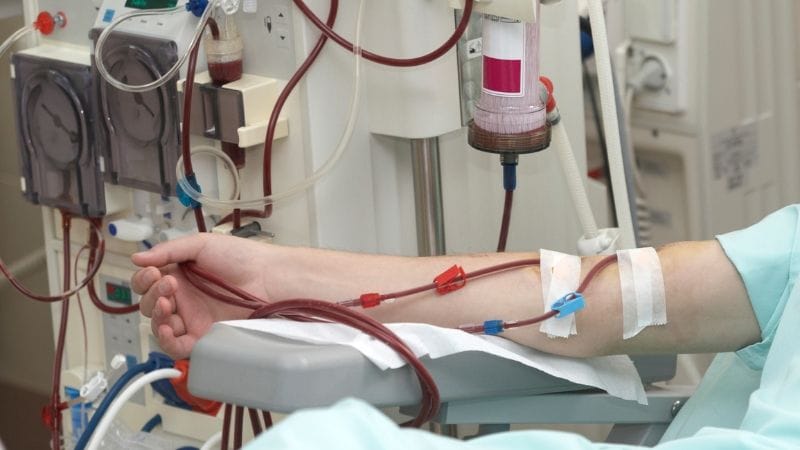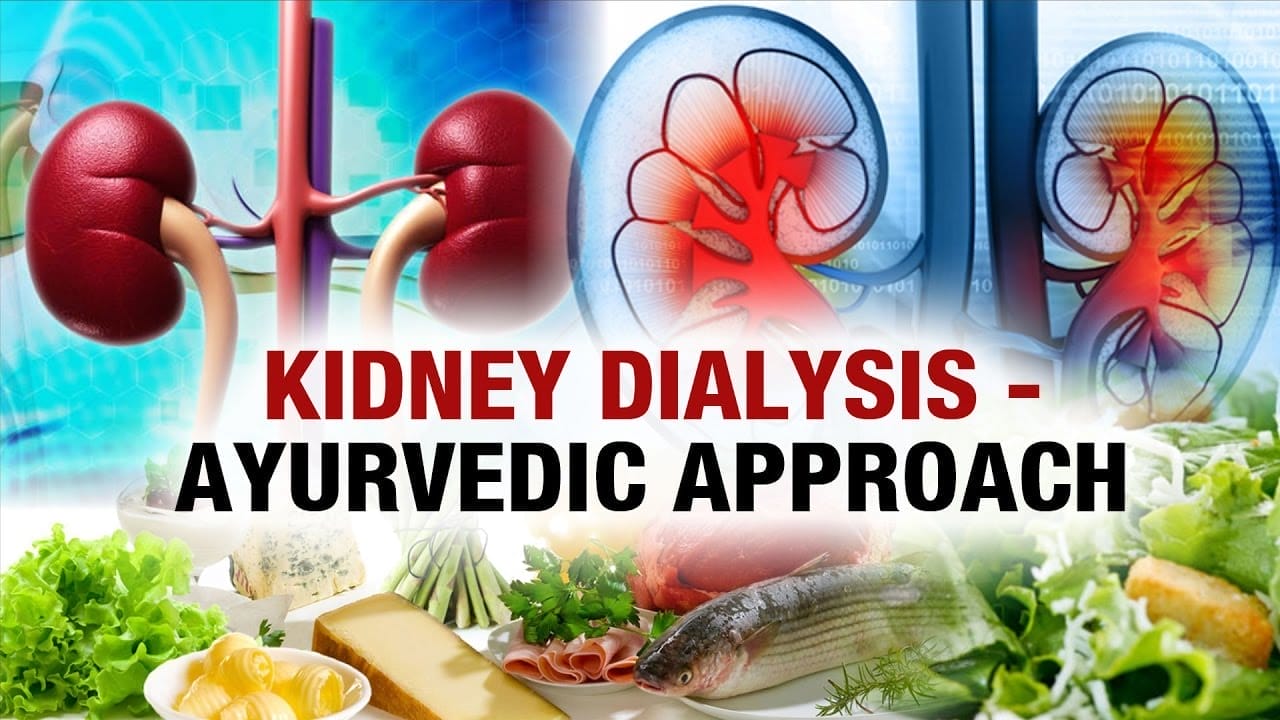Modern medicine treats severe renal disease or failure with dialysis or kidney transplantation. Dialysis and transplantation are the two major types of treatments.
When the kidneys do not function, waste starts accumulating in the blood. The waste includes electrolytes, acids, fluids, etc. Dialysis replaces the functions of the failing kidneys. It eliminates fluid and waste products by taking over some of their roles. In certain kidney patients, kidney transplantation can replace the kidney’s function. Our age-old Kidney treatment in Ayurveda is helpful over dialysis and transplant ill effects.

When is a kidney Transplant or Dialysis be required?
A kidney transplant is helpful in certain conditions. It is beneficial when the disease reaches a point where dialysis becomes utmost necessary.
Severe renal failure can occur in individuals silently carrying kidney disease for years. Otherwise, it takes several months or years after the identification of kidney illness. Your doctor can suggest which is better for you-dialysis or transplantation? It will increase your life expectancy or enhance your quality of life.
Doctors start dialysis treatments for severe renal disease or minor kidney failure symptoms. These signs and symptoms include vomiting, dizziness, nausea, lack of appetite, fatigue, etc.
After considering your kidney function (as determined by blood and urine tests), general health, uremic symptoms, and personal preferences, you and your doctor will decide on the dialysis process. The majority of patients will experience kidney failure symptoms. Thus, they often plan to begin dialysis when their kidney function is about 10% normal.

Kidney Transplantation
The quality of life and life expectancy is greater for people undergoing dialysis. Kidney transplantation is of choice for persons with severe chronic renal disease. Many kidney transplant candidates wait and use dialysis until a kidney becomes available.
One kidney is a must for survival; the other can be donated by a deceased or a living donor. Organs from living donors work better and last longer than the deceased donor.
Some renal failure sufferers are ineligible for kidney transplantation. Some problems could disqualify patients from receiving a kidney transplant. It includes the following:
- Chronic illness leading towards death
- Active or recently treated cancer
- Dementia
- Uncontrolled mental illness
- Severe obesity
- Inability to remember to take medications
- Current drug or alcohol abuse
- Poor compliance with medications or dialysis
Cons: Kidney transplantation is an effective surgical procedure. It also carries a few risks during and following the process. Infection, haemorrhage, and organ damage are the procedure’s hazards. Even death can happen, albeit it happens very infrequently.
You will need medicines and routine monitoring after a kidney transplant. It will be for the rest of your life to reduce the possibility of organ rejection. The medication may also cause serious adverse effects. Adverse effects include a risk of developing serious infections, diabetes, or cancer.
Dialysis & Transplant
Here, your blood is pumped through a dialysis machine. This machine works to flush out waste materials and extra fluids. A path is surgically made to connect you to the dialysis machine. Kidney treatment without dialysis may involve inserting a catheter into a major vein in the neck. It enables the removal of blood from the body. Then it circulates via the dialysis device and, finally, it returns to the body.
You can perform dialysis at home or in a hospital. It usually takes three to five hours per session. One can also do home dialysis; each session lasts between three and ten hours.
Cons-A disadvantage of dialysis is low blood pressure. Low BP can cause lightheadedness, shortness of breath, stomach cramps, nausea, vomiting, etc.
Additionally, the access can get blocked or infected. It would create the need for surgery or other operations to clear it.
Because it is time-consuming, many patients are either unable to work or decide not to work.

Role of Ayurveda Dialysis & Transplant
Above, we can see the many after effects of kidney transplants and dialysis. Choosing a safe and secure alternative for kidney diseases would be better.
Ayurveda expounds on the wisdom of life. It says that an imbalance in your consciousness brings a disease. Ayurveda suggests lifestyle changes and simple herbal treatments. It believes that humans are a part of the environment they live in. Your body, mind, spirit, and surroundings should harmonize. One can achieve this with ayurvedic medicines.
Ayurvedic kidney treatment starts with an internal purification process. A special diet and ayurvedic medicines follow it. Specific massage therapy, yoga, and meditation may also be suggested in a few cases.
Ayurveda treats the root cause of any disease and aims for overall health. Thus, opting for ayurvedic treatment would always be a better choice.

